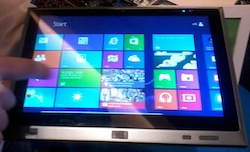TURN for the better, but not the worse among CASF hopefuls
ARRA, casf, community networks, cpuc, municipal broadband, regional consortia, WISP
The Utility Reform Network (TURN) likes the idea of making California Advanced Services Fund subsidies available to more than just traditional telephone companies. But not to just anyone, saying “TURN shares the Commission’s concerns…that ratepayer money used to fund the CASF program must be protected from waste, fraud and abuse.”

The Commission’s Division of Ratepayer Advocates (DRA) echoed those concerns, calling for safeguards if CASF eligibility is expanded.
TURN’s answer is to apply the standards set by the CPUC three years ago when it gave CASF matching grants to successful applicants funded by the federal stimulus program (ARRA).… More








